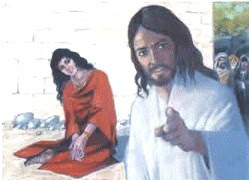 Most people are taught to live out their vocation in their lives by the influence of others. If they are taught about God and his teachings, they will have a better understanding of how exactly to live out their vocations to the fullest. Some of those who teach us about vocations and give us the knowledge to know, love, and serve God are priests, deacons, and religious brothers and sisters. These individuals not only help us to understand what a vocation is, but also how to live it out in everything that we could possibly do. But how do these people influence us to follow our own vocations? It’s really quite simple.
Most people are taught to live out their vocation in their lives by the influence of others. If they are taught about God and his teachings, they will have a better understanding of how exactly to live out their vocations to the fullest. Some of those who teach us about vocations and give us the knowledge to know, love, and serve God are priests, deacons, and religious brothers and sisters. These individuals not only help us to understand what a vocation is, but also how to live it out in everything that we could possibly do. But how do these people influence us to follow our own vocations? It’s really quite simple.
Another group of people that help us in vocations are religious brothers and sisters. These people give complete devotion to the Lord. They have to take three vows: chastity, poverty, and obedience. Taking these vows means that they have to give up freedoms that others have, such as getting married. However, they don’t care about not having those freedoms. They are so dedicated to God that they don’t need to worry about having petty freedoms like those, especially while they’re in God’s hands. People who need help with their own vocations could be inspired by the religious brothers and sisters and their great devotion to God so much that they may consider becoming one themselves. And if they don’t want to go that far, at least they would be inspired to live out their vocations to their fullest.




 Priests, deacons, and religious brothers and sisters, using what they have learned by their life and ministry, invite others to share in the teachings of Christ using the examples they set. When good examples are set they are showing us what they have learned and telling us of what we will learn.
Priests, deacons, and religious brothers and sisters, using what they have learned by their life and ministry, invite others to share in the teachings of Christ using the examples they set. When good examples are set they are showing us what they have learned and telling us of what we will learn.




